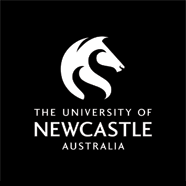| Site Name | Baker's Creek, Upper Ganghat |
| Aboriginal or Torres Strait Islander Place Name | |
| Language Group, Nation or People | Binghi |
| Present State/Territory | NSW |
| Colony/State/Territory at the time | NSW |
| Police District | Gloucester |
| Latitude | -31.903 |
| Longitude | 152.127 |
| Date | Between 1 Jan 1834 and 31 Dec 1834 |
| Attack Time | Day |
| Victims | Aboriginal or Torres Strait Islander People |
| Victim Descriptions | Aboriginal |
| Victims Killed | 6 |
| Victims Killed Notes | |
| Attackers | Colonists |
| Attacker Descriptions | |
| Attackers Killed | 0 |
| Attackers Killed Notes | |
| Transport | |
| Motive | Reprisal |
| Weapons Used | Poison |
| Narrative | According to the Wingham Chronicle, April 25, 1922, p2 following Binghi warriors stealing cattle from the Australian Agricultural Company's 'heifer station at Baker's Creek, 12 miles north east of Gloucester,' (near Mount Ganghat) in 1834, the beleaguered employees 'in the hut were driven to dire straits, and as a last resource mixed arsenic in dampers and placed them where the natives had easy access to them. The result was deadly to the natives. The black warriors lay down and died all around.' (Wingham Chronicle and Manning River Observer 25 Apr 1922 p 2)
In 1889 a corresponden to the Daily Telegraph, 'J.W.C' wrote, 'White women were scarce in those days, and these men took as help-mates a couple of black gins from a tribe belonging to the head quarters they started from. The aborigines or native blacks were very troublesome in those days, especially in the vicinity of Cape Hawke, not far from the Manning River entrance, and being aware that a supply of rations had been recently brought to Gangat and that there were only two men in charge, they decided to stick the station up and help themselves, One or two of the Cape Hawke blacks were in the habit of visiting the station occasionally on their marauding excursions, and unwittingly, apparently, made the gins acquainted with their designs, probably in the hope of satisfying them of their safety in the event of success. The gins were honest enough to apprise their mates of the threatened danger, and suitable precautions were adopted. Slits were cut in the slab walls so that guns could be protruded to cover the approach of their assailants. Everything useful and portable was brought into the humpy and doors and windows barricaded. On the morning of the attack two blacks came to the hut as usual and were at once ordered to leave and keep away or they would be fired upon. The day wore on and towards the afternoon a mob of blacks numbering from 50 to 60 came down to the station, fully armed for hostilities with spears, boomerangs and nulla-nullas, and demanded grub. These also were cautioned to keep off under penalty of being fired upon, and seeing the muzzles of two guns sticking out of a slit in a slab in front of them, they retired a few yards off, made their fires and camped for the night. Their intention evidently was to attack the station as soon as it was dark, and probably set the hut on fire and murder the men. Taylor and M'Grath were in a serious fix. Miles from any help, their horses in the bush unavailable for flight, they felt that with the approach of night their doom was sealed, and to make matters worse, on examination they found that they had only a couple of charges of powder. Taylor fortunately had a good supply of arsenical soap, so the men went to work and made up a lot of Johnny cakes, well mixing tho dough up with the soap; and in the evening they opened the door of tho hut and pitched out the cakes and drew the attention of the blacks to the grub supplied for their gratification. There was a regular scramble for the cakes, while the door was closed and the inmates awaited the result. The effects of the arsenic soon told upon the blacks, many of whom rushed to the water and drank to repletion to allay tho burning inside. Some of the most gluttonous dropped dead, and such a scare was produced upon the tribe that they bolted, being perfectly satisfied that the grub they had so daringly demanded was not exactly the kind of grub they desired. This, I believe, was the first act of poisoning the native cannibals in the colony, and I don't believe there are many of the present generation who will blame Taylor and McGrath for their action in self-defence. The men next morning left for head-quarters, and the cattle were scattered in every direction, causing a heavy loss to the company. Many took to the scrubs about Bundobah and Boolaydeelah, and the destruction of the bulls years after afforded many a day's sport to crack pistol-shots from horseback' (The Daily Telegraph, 13 Jul, 1889, p 9). |
| Sources | Wingham Chronicle, April 25, 1922, p. 2 http://nla.gov.au/nla.news-article166220492; Newcastle Morning Herald, July 25, 1964; Fitzpatrick, 1925, p 29; The Daily Telegraph, 13 Jul, 1889 https://trove.nla.gov.au/newspaper/article/236015071 (Sources PDF) |
| Corroboration Rating | * |

